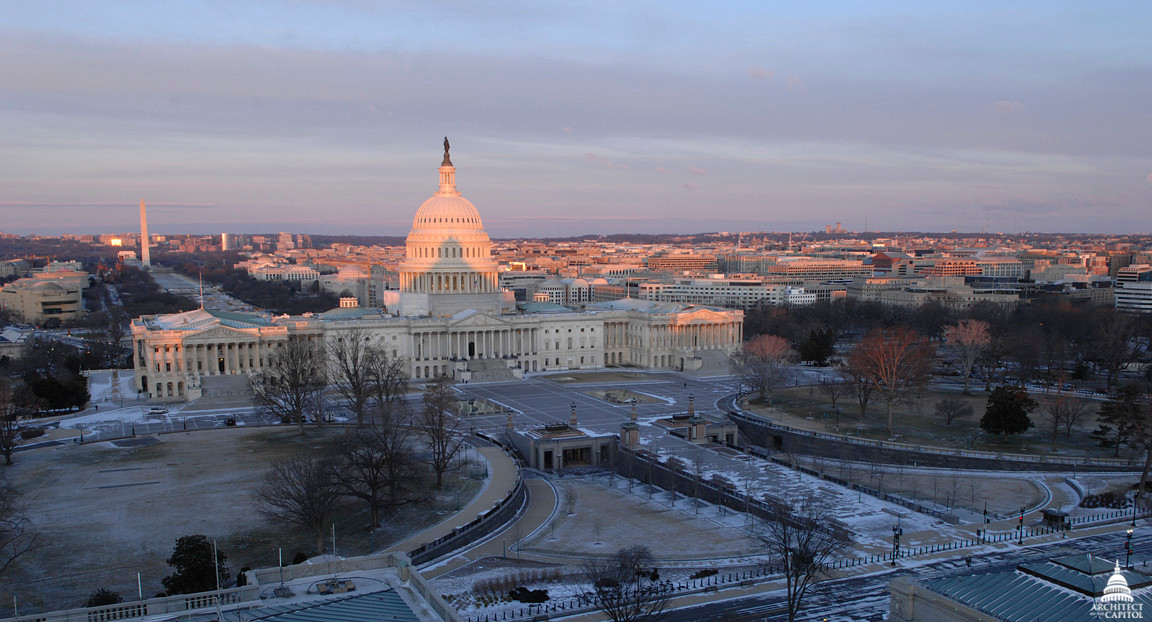Sen. Hawley: Big Tech's Sec. 230 Sweetheart Deal Must End

The smarter way to stay on top of broadcasting and cable industry. Sign up below
You are now subscribed
Your newsletter sign-up was successful
Sen. Josh Hawley (R-Mo.) railed at Big Tech at the Conservative Political Action Conference (CPAC) in Washington Friday, saying the days of a sweetheart deal between the government and Big Tech need to come to an end. "Google and Facebook
should not be a law unto themselves, " he said to applause.
During an interview with the Wall Street Journal's Kimberley Strassel. Hawley identified the principle such deal as Sec. 230 of the Communications Decency Act. That is the section, relied upon by social media platforms, that relieves them of liability for third-party content, saying, in part: "No provider or user of an interactive computer service shall be treated as the publisher or speaker of any information provided by another information content provider."
Related: Supremes Silence Speaks Volumes About Online Speech Liability Protection
Hawley was throwing political red meat to the crowd, though appeared to be sincere in his belief that Google and Facebook were pursuing a left wing agenda while suppressing conservative and libertarian voices.
Silicon Valley has come under fire from Republicans for what they see as attempts to label conservative speech as inappropriate content—either as hate speech or that makes their online communities uncomfortable. No less an expert than Facebook CEO Mark Zuckerberg has added some fuel to that fire by saying in a Hill hearing that their concerns about a liberal bias in Silicon Valley were legitimate, though he hastened to add his company had no policy of suppressing conservative voices.
Hawley branded Sec. 230 as a way for Big Tech—in this case edge providers in particular—to discriminate against conservative and libertarians—a charge he repeated several times—while avoiding the consequences.
Strassel asked whether eliminating Sec. 230 would not just lead to more speech suppression because social media sites, once they were liable for the content, would censor it more and point to the lack of liability.
The smarter way to stay on top of broadcasting and cable industry. Sign up below
Hawley said the answer could be to modify the section so that to get the liability, a platform would have to meet a threshold definition of neutral. They can weed out speech advocating violence or crime, which isn't constitutionally protected speech anyway, but if they engage in viewpoint discrimination, they should be on the liability hook.
Strassel asked whether conservatives should be proposing giving Congress more say over what gets said, and that maybe the answer was more competition, like when Fox came along to shake up the Big Three broadcast networks.
Hawley responded that Big Tech's massive data mine was an impediment to competition because other companies can't access it and the Googles and Facebooks of the world can keep competitors from getting to market.
He said Big Tech has a lot to answer for on the privacy front, and that any new privacy legislation should first protect kids—an "eraser" button" for kids data, for example—then "go from there."
Asked what, specifically, privacy legislation should look like from a conservative's viewpoint, he said it should establish a property right in an individual's data, that it belongs to the user, not the companies collecting it, and they should be able to "get it back," if they want. Then, he said, enforce the law.
Strassel pointed out that Department of Justice antitrust chief Makan Delrahim, who she said was to have appeared as well but could not make it, has pointed out that Big Tech's bigness by itself does not pose a problem, only if it is used anticompetitively.
Hawley said he might want to "check with his boss" (new attorney general Bill Barr), who said at his confirmation hearing he had definite concerns about the concentration of power in Silicon Valley. "Do we want a country run from Silicon Valley; do we want policy run from Silicon Valley," Hawley said to the crowd, whose unsurprising answer was no. Hawley called it the big fight of our time.
Strassel also interviewed attorney Harmeet Dhillon, formerly with the Justice Department. Dhillon agreed that Sec. 230 needed some attention, pointing to the bill from conservative Republican Ted Cruz (Tex.) that would preserve the section but tie it to platform neutrality. She said Google and Twitter have said they are publishers and, if so, should now have to have the same liability as others for what they publish. Sec. 230 views the users as publishers, rather than the platforms.
As to the antitrust view that big isn't bad unless that size is used anticompetitively, Dhillon said the Google/Facebook "duopoly" was absolutely anticompetitive.
Congress is currently debating whether there needs to be any changes to Sec. 230 in the wake of issues like online sex trafficking, election meddling and more. The concern is bipartisan.
Sen. Mark Warner (D-Va.), co-chair of the Senate Intelligence Committee and himself a former tech exec, has said Sec. 230 may not make sense any more now that half of the country gets its news from Facebook. "Suddenly, that 1990s framework might not be exactly right," he told The Atlantic magazine last fall, citing the "arrogance of the edge."
Contributing editor John Eggerton has been an editor and/or writer on media regulation, legislation and policy for over four decades, including covering the FCC, FTC, Congress, the major media trade associations, and the federal courts. In addition to Multichannel News and Broadcasting + Cable, his work has appeared in Radio World, TV Technology, TV Fax, This Week in Consumer Electronics, Variety and the Encyclopedia Britannica.

